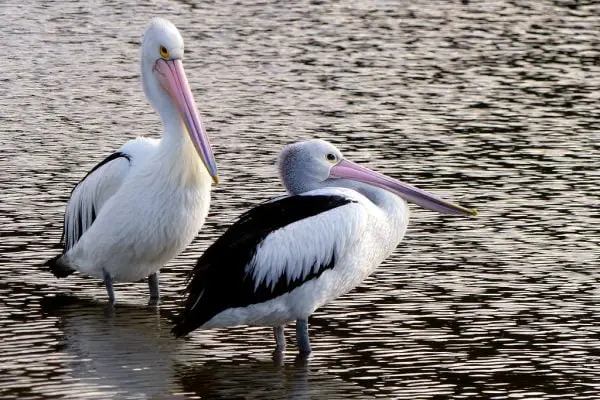Sharks, the apex predators of the ocean, have captivated and frightened humans for centuries. With their sleek bodies, razor-sharp teeth, and powerful senses, they hold a unique place in the marine ecosystem. Beyond their physical prowess lies a fascinating social dynamic reflected in the diverse collective nouns used to describe them. By exploring these terms, we embark on a journey deeper into the world of sharks, delving into their behavior, ecological significance, and the challenges they face in a changing world.
Collective Nouns for Sharks
While “shiver” is the most commonly used collective noun for sharks, signifying a group swimming together, other terms paint a more nuanced picture depending on the context:
- Shiver: This term evokes a sense of swift movement, shared purpose, and silent power. It depicts a large group of sharks swimming in a loosely organized but coordinated manner, often associated with feeding or migration. The term may have originated from the Old English word “sceofl,” meaning “a troop, flock, or multitude.”
Example: As the sun dipped below the horizon, casting long shadows across the rippling waves, a shiver of sharks emerged from the depths. Their sleek bodies glided effortlessly through the water, their sharp fins slicing through the currents with silent precision, showcasing their coordinated movement and shared purpose in search of prey.
- School: This term signifies a large and tightly organized group of sharks swimming in synchronized unison. It evokes a sense of collective movement, coordinated behavior, and visual spectacle. Schools of sharks are often observed during feeding frenzies or migratory journeys.
Example: In a breathtaking display of collective behavior, a school of sharks circled a patch of baitfish. Their silver bodies flashed in the sunlight as they moved in perfect unison, creating a mesmerizing dance of coordinated movement and synchronized hunting tactics.
- Pack: While typically used for land predators, the term “pack” can describe a group of hunting sharks, particularly when referring to larger species like great white sharks. It evokes a sense of cooperation, predatory instinct, and shared focus.
Example: Driven by a primal instinct, a pack of great white sharks converged on a wounded seal floating on the surface. Their powerful bodies cut through the water with a sense of urgency, their keen senses focused on the easy prey, showcasing the cooperative hunting behavior and focused predatory instincts within this temporary group.
- Herd: This term, less commonly used for sharks, signifies a large and loosely organized group of sharks grazing or feeding together, often associated with filter-feeding species like basking sharks. It evokes a sense of abundance, shared resource utilization, and relaxed movement.
Example: Near the surface of the ocean, a herd of basking sharks glided through the plankton-rich waters. Their massive mouths gaped open, filtering the microscopic organisms as they moved slowly together, showcasing the shared feeding strategy and relaxed movement patterns within this large group.
Interesting Facts About Sharks
Understanding these collective nouns goes beyond mere vocabulary; it allows us to appreciate the complexities of shark behavior and their vital role within the marine ecosystem:
Masters of the Deep: Sharks possess remarkable adaptations for survival, including powerful swimming abilities, keen senses, and specialized anatomical features. These adaptations allow them to excel as apex predators, playing a crucial role in maintaining a balanced ecosystem by controlling prey populations.
Vulnerable Beauties: Sadly, sharks face numerous threats, including overfishing, habitat destruction, and climate change. These threats jeopardize their survival and require global action to ensure their continued presence in the ocean.
Misunderstood Creatures: Sharks often face negative portrayals in popular media, perpetuating the myth of a mindless and relentless predator. Understanding their diverse behavior and ecological significance can help dispel these misconceptions and foster respect for these fascinating creatures.
Final Thoughts
From the silent “shiver” gliding through the ocean depths to the mesmerizing “school” displaying synchronized movement, the diverse collective nouns for sharks offer a glimpse into their multifaceted lives and enduring presence in the marine world. By appreciating these terms, understanding their intricate behavior, and addressing the challenges they face, we can ensure that these captivating creatures continue to roam the oceans, inspire awe, and maintain their vital role in the delicate balance of the marine ecosystem for generations to come.
Also Read:





